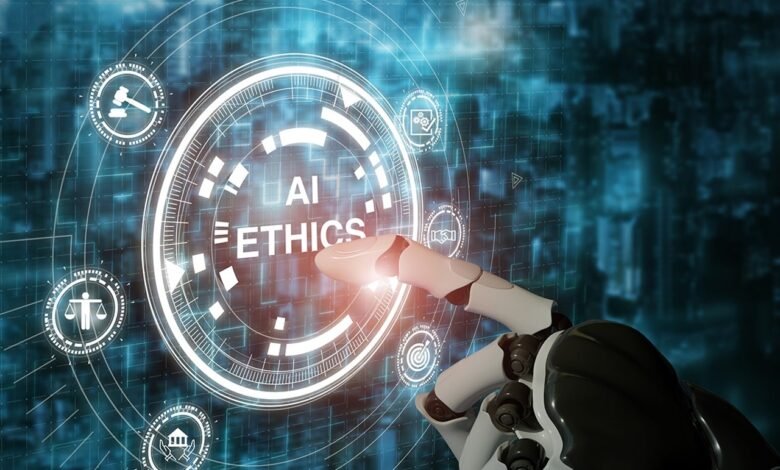The Rise of AI Ethics and Responsible Technology

AI ethics refers to the moral principles and guidelines that govern the development, deployment, and use of artificial intelligence systems. It encompasses various ethical concerns such as fairness, transparency, accountability, privacy, and bias mitigation. As AI technologies become increasingly integrated into our daily lives, ensuring ethical AI practices has become paramount.
Historical Context of AI Ethics
The roots of AI ethics can be traced back to the early debates and concerns surrounding the potential risks and implications of artificial intelligence. Throughout history, there have been pivotal moments that shaped the discourse on AI , including the development of ethical frameworks and guidelines.
Key Principles of AI Ethics
Transparency, accountability, fairness, and privacy are among the core principles of AI ethics. Transparency involves making AI systems understandable and explainable to users, while accountability ensures that developers and deployers are held responsible for the outcomes of AI applications. Fairness and bias mitigation aim to address the inherent biases present in AI algorithms, while privacy emphasizes the protection of user data and confidentiality.
Role of Stakeholders in Promoting AI Ethics
Various stakeholders play a crucial role in promoting AI ethics, including governments, corporations, academic institutions, and the general public. Government regulations help establish legal frameworks and standards for ethical AI development, while corporations are increasingly recognizing their responsibility in adopting ethical AI practices. The academic and research community contributes to the advancement of AI through interdisciplinary studies and research, while public engagement fosters awareness and accountability.
Challenges and Ethical Dilemmas in AI
Despite the potential benefits of AI, there are numerous challenges and ethical dilemmas that need to be addressed. Issues such as autonomous weapons, surveillance, job displacement, and bias in AI algorithms raise significant ethical concerns and require careful consideration and mitigation strategies.
Current Trends in AI Ethics
Recent years have seen a growing emphasis on ethical AI development, with the emergence of ethical AI frameworks and guidelines. Organizations are integrating ethical considerations into their AI development processes, and responsible AI practices are gaining traction across various industries.
Future Prospects of AI Ethics
Looking ahead, the field of AI is poised for continued evolution and development. As AI technologies become more advanced and pervasive, there will be a greater need for robust ethical guidelines and global collaboration to address emerging ethical challenges.
Read More: The Power of Data in AI: Unlocking the Potential for Smarter Systems
Conclusion
The rise of AI ethics and responsible technology marks a transformative shift in how we approach innovation and progress. As we harness the power of artificial intelligence to tackle complex challenges and improve human lives, it is essential to recognize the ethical considerations inherent in its development and deployment. By prioritizing transparency, accountability, fairness, and privacy, we can build a future where AI serves as a force for good, fostering trust and collaboration between humans and machines.
Moving forward, continued dialogue, collaboration, and regulatory frameworks will be vital in shaping the ethical landscape of AI. As technologies evolve and become more integrated into our daily lives, it is crucial to remain vigilant and proactive in addressing emerging ethical challenges. By upholding ethical principles and striving for responsible technology development, we can ensure that AI remains a tool for empowerment and advancement, benefiting individuals and society as a whole.
FAQs
What is AI ethics, and why is it important?
AI ethics refers to the moral principles governing the development and use of artificial intelligence. It is important to ensure that AI technologies are developed and deployed responsibly, considering factors such as fairness, transparency, and privacy.
What are some ethical dilemmas associated with AI?
Ethical dilemmas in AI include issues such as bias in algorithms, job displacement, surveillance, and the development of autonomous weapons.
How can stakeholders promote AI ethics?
Stakeholders, including governments, corporations, academic institutions, and the public, can promote AI through regulatory measures, corporate responsibility, research and education, and public engagement.
What are some current trends in AI ethics?
Current trends in AI ethics include the development of ethical frameworks and guidelines, the integration of ethical considerations into AI development processes, and the adoption of responsible AI practices by organizations.
What does the future hold for AI ?
The future of AI will likely involve continued evolution and collaboration to address emerging ethical challenges posed by advanced AI technologies.











